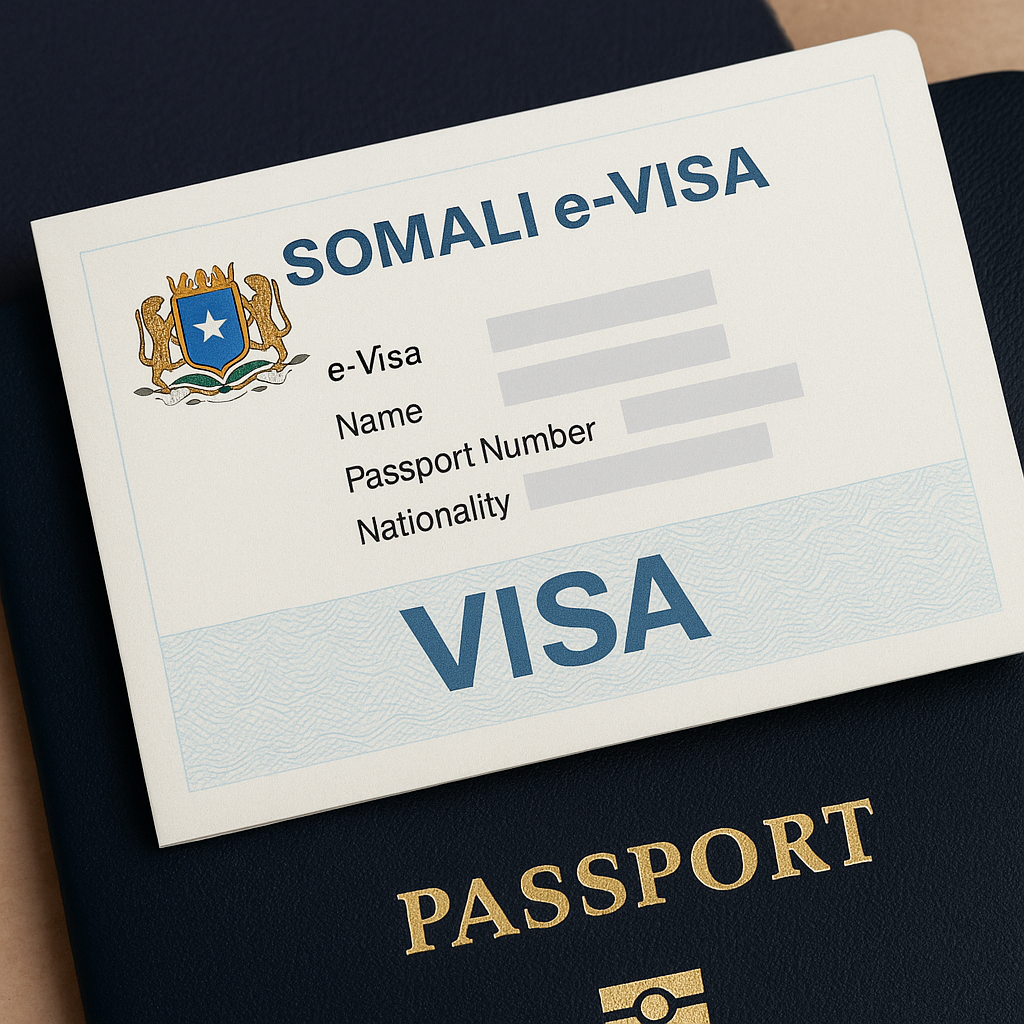In September 2025, the Federal Republic of Somalia launched a new online e-Visa system, requiring all foreign passport holders — including members of the Somali diaspora traveling to the north — to apply online and pay a fee of about $64.
Somalia new e-Visa system is a step toward modernized travel, enhanced security, and improved transparency in immigration procedures.
“Double Visa” Burden Hits Travelers
However, the launch of Somalia new e-Visa system quickly created confusion among travelers.
Airlines flying into Hargeisa, the capital of the breakaway region of Somaliland, began asking passengers if they held the federal e-Visa.
Some travelers were denied boarding for not having it, even though Somaliland maintains its own immigration controls.
Upon arrival in Hargeisa, many visitors reported being asked to pay an additional visa fee on top of the federal e-Visa payment — effectively paying twice to enter the region.
Somaliland Rejects Somalia New E-Visa System
Somaliland, which declared independence in 1991 though remains unrecognized internationally, swiftly rejected the Somalia e-Visa requirement.
Its Ministry of Civil Aviation confirmed that visitors would continue to be granted Visa on Arrival at Egal International Airport and other entry points, and that only visas issued by the Somaliland Immigration Authority are valid for entry into the region.
Officials in Hargeisa argued that the e-Visa system represents an overreach of Mogadishu’s authority and an infringement on Somaliland’s autonomy.
Autonomy vs. Centralization: Political Underpinnings
The travel confusion reflects deeper political tensions between Somalia’s federal government and its autonomous regions.
While Mogadishu insists it has the right to manage immigration for the entire country, regional governments such as Somaliland and Puntland maintain that they issue their own visas and control their borders.
Reports from travelers to Puntland indicate that even those with valid federal e-Visas were charged additional entry fees as local authorities rejected the federal system.
This power struggle has turned a technical modernization effort into a politically charged issue.

Impacts of Somalia New E-Visa System on Travelers and Investment
For Somali diaspora members and visitors flying into Hargeisa or Garowe, the situation has been both frustrating and costly.
Several travelers have reported being forced to pay twice or being delayed at airports due to unclear rules.
Analysts warn that beyond the inconvenience, such confusion could deter tourism, discourage diaspora investment, and create uncertainty for humanitarian and development organizations operating in northern Somalia.
Business travelers in particular have expressed concern that inconsistent entry rules may harm efforts to attract international investment and trade.
Two Systems, Two Rules: A Practical Breakdown
To understand the issue clearly, travelers must distinguish between two systems:
- Somalia’s e-Visa System: Requires online application before travel, online payment of around $64, and is recognized at federal entry points under Mogadishu’s control.
- Somaliland’s Visa on Arrival: Does not require online application, allows payment and visa issuance at the airport, and does not recognize the federal e-Visa for entry into Somaliland.
Because the two systems operate independently, travelers flying directly to Somaliland may find their federal e-Visa invalid there.
What Should Travelers Do?
Given the ongoing uncertainty, travelers are advised to:
- Confirm whether their destination is under federal or regional administration.
- For trips to Hargeisa (Somaliland), be prepared to obtain a Visa on Arrival, even if an e-Visa has been paid for.
- For destinations under federal control, apply for Somalia e-Visa in advance.
- Keep digital and printed proof of payment and correspondence to avoid disputes at airports.
- Allow extra time for immigration procedures and possible clarifications upon arrival.
Need for Coordination
Observers believe that the disagreement between Somalia’s federal and regional authorities highlights the urgent need for better coordination.
While the e-Visa system could modernize travel and improve security, its success depends on clear communication and collaboration across all Somali regions.
Without a unified policy, both travelers and the country’s broader development goals could suffer from ongoing confusion and lack of consistency.








